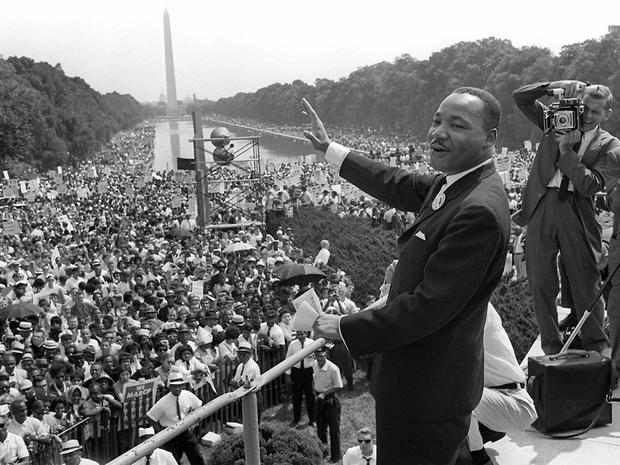Poll: Half say racial equality not yet a reality
WASHINGTON Fewer than half of all Americans say the U.S. has made substantial progress in the past 50 years toward racial equality, a new poll shows.
A heightened sense of progress immediately after the 2008 election of Barack Obama as the first black president hasn't lasted.
The study, released Thursday by the Pew Research Center, offers a mixed picture of progress five decades after Martin Luther King Jr. made his historic "I Have a Dream" speech calling for racial equality. The center is a Washington-based research organization.
While large majorities of blacks and whites say the two races generally get along "very well" or "pretty well," blacks remain far behind whites when it comes to household income and net worth. Nearly 8 in 10 African-Americans say a lot of work remains to be done to reach racial equality.
Blacks are more likely than other race groups to say they have been discriminated against in the past year - 35 percent vs. 20 percent for Hispanics and 10 percent for whites. Majorities of blacks say they are treated less fairly than whites in dealing with police, in the courts, in local public schools or on the job.
Obama's election only temporarily boosted perceptions of progress for blacks. After initially rising across all races, the percentage saying blacks had gained ground in the last five years has dropped to levels last seen in 2007.
Only 1 in 4 African-Americans say the situation of black people is better now than five years ago, down from 39 percent in 2009. Among whites, it fell from 49 percent to 35 percent.
Overall, 49 percent of Americans say "a lot more" remains to be done to achieve racial equality. Among blacks, the share climbs to 79 percent, compared with 44 percent for whites and 48 percent for Hispanics.
"The public seems to be saying that we as a society are heading in the right direction, but we aren't there yet," said Pew senior editor Rich Morin.
The recent recession hit blacks hard, particularly in employment, said Howard University sociologist Roderick Harrison, a former chief of racial statistics at the Census Bureau.
Overall, Americans are four times as likely to say the average black person is worse off than the average white person, though 41 percent say they are equally well off.
Recent analysis by the Associated Press-NORC Center for Public Affairs Research shows that confidence among African-Americans in Congress and the executive branch has dropped sharply since spiking in 2010, amid increasing political polarization and a divided government.
The Pew survey includes interviews with 2,231 adults by cellphone or landline from Aug. 1-11, 2013, including 1,471 non-Hispanic whites, 376 non-Hispanic blacks and 218 Hispanics. Among all adults, the margin of sampling error is plus or minus 2.5 percentage points. It is higher for subgroups.
